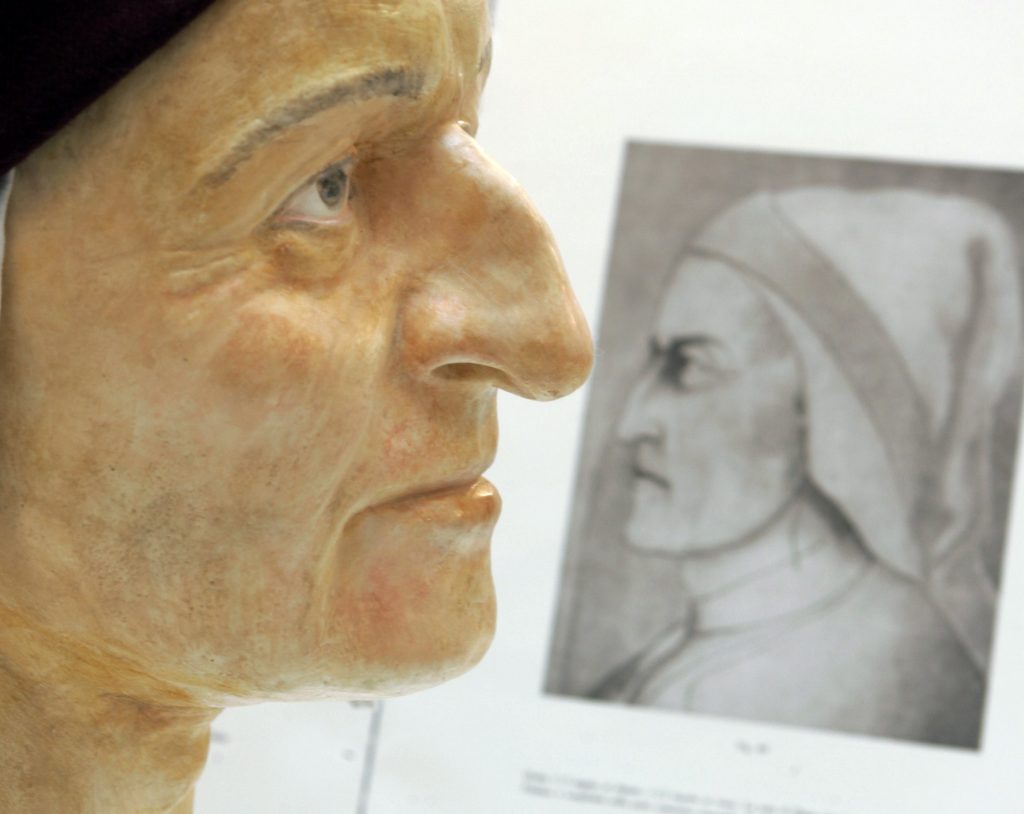During the 2015 celebration of the 750th birthday of Dante Aligheri, Pope Francis invited Catholics from all over the world to read The Divine Comedy, one of the most important works of Western and Christian civilization.
For those who find the task of reading this medieval poem daunting, the Argentine pontiff is releasing an apostolic letter called Candor Lucis Aeternae, to mark the 700th anniversary of the Italian poet’s death.
Though the Holy See’s press office hasn’t confirmed it, Italian Cardinal Gianfranco Ravasi has been hinting for over a month that it’s coming out Thursday, March 25, the day in which Dante allegedly began writing The Divine Comedy.
On Oct. 10, Francis had said he was preparing “a more extensive reflection” on Dante while addressing a delegation from the Italian Archdiocese of Ravenna-Cervia, where Dante died in 1321.
“It may seem, at times, as if these seven centuries have opened up an unbridgeable distance between us, men and women of the postmodern and secularized age, and him, the extraordinary exponent of a golden age of European civilization,” Francis said at the time. “And yet something tells us that it is not the case.”
“Teenagers, for instance — even those of today — if they have the opportunity to encounter Dante’s poetry in a way that is accessible to them, find on the one hand, inevitably, a great distance from the author and his world, and yet, on the other, they perceive a surprising resonance.”
The Divine Comedy
Italian poet Alessandro Rivali, an editor at the Italian publisher Ares, said Dante’s masterwork was a piece “that wants to lead man to God. The Divine Comedy is a great travel project.”
Divided in three parts — Inferno (Hell), Purgatorio (Purgatory), and Paradiso (Heaven) – Rivali argued that Dante had many reasons to write The Divine Comedy, but the main one was “returning man to God’s original design, that is, away from sin and toward happiness.”
“The Divine Comedy is a kind of great encyclopedia in which he put everything that was known about man until then,” Rivali told Crux. “He was remarkable man, a top player not only from a poetic point of view, but also from a philosophical and theological point of view. In Florence he had studied with the Franciscans and with the Dominicans, so he had a preparation completely outside the norm.”
Dante influenced much of the poetry produced for centuries after him, and he himself was inspired by those who preceded him, in particular Virgil, who Rivali defines as “his teacher, and a very current figure.”
In The Divine Comedy, Virgil holds Dante’s hand both in Hell and Purgatory: “It is a very interesting metaphor for our time that does not recognize teachers, presents this war between generations and hatred for the past.”
“In today’s life what is lacking are teachers, people with the patience and generosity to give themselves to the youngest, at a time marked by individualism,” Rivali, who recently published his latest book of poetry, The Land of Cain.
Beyond being a book that also speaks this time, the 300-page Divine Comedy also has resonance with the present pontificate: The second part, Purgatorio, is all about mercy, something Pope Francis particularly emphasizes.
Dante and the popes
Though often labeled as a “pope of firsts,” Francis’s Candor Lucis Aeternae is not the first reflection by a pontiff on the poet: Benedict XV published the encyclical titled In Praeclara Sumorum (“Among the many celebrated geniuses”) in 1921, which was dedicated to Dante’s memory and written for the occasion of the sixth centenary of his death. Pope St. Paul VI also wrote apostolic letter in 1965, Altissimi Cantus, to mark the seventh centenary of his birth.
“Someone might perhaps ask why the Catholic Church, by the will and work of its visible Head, takes it to heart to celebrate the memory of the Florentine poet and to honor him,” Paul VI wrote. “The answer is easy and immediate: Dante Alighieri is ours by a special right: Ours, that is, of the Catholic religion, because everything breathes love for Christ; ours, because he loved the Church very much, of which he sang honors; ours, because he recognized and venerated the Vicar of Christ on earth in the Roman Pontiff.”
In 2015, ahead of the inauguration of the Extraordinary Jubilee Year of Mercy, Francis said that Dante “is a prophet of hope, herald of the possibility of redemption, liberation and the profound transformation of every man and woman, of all humanity.”
Both of Francis’s most recent predecessors also praised the poet.
At a reading of The Divine Comedy in 1997, Pope St. John Paul II noted that “almost seven centuries later, Dante’s art evokes lofty emotions and the greatest convictions, and still proves capable of instilling courage and hope, guiding contemporary man’s difficult existential quest for the Truth which knows no setting.”
Benedict XVI also voiced great admiration for the poet, and when he was still a priest and wrote his famous book Introduction to Christianity in 1968, he uses The Divine Comedy to explain the “scandal of Christianity.”

